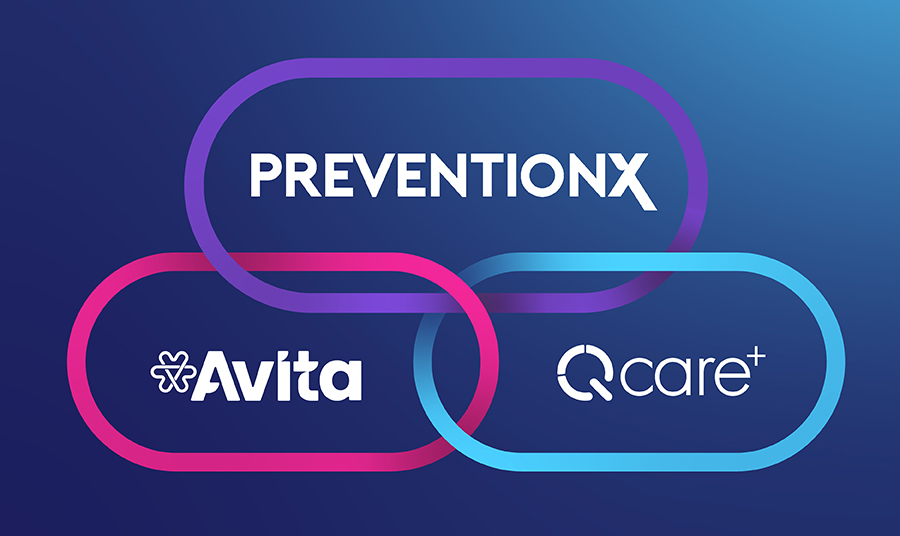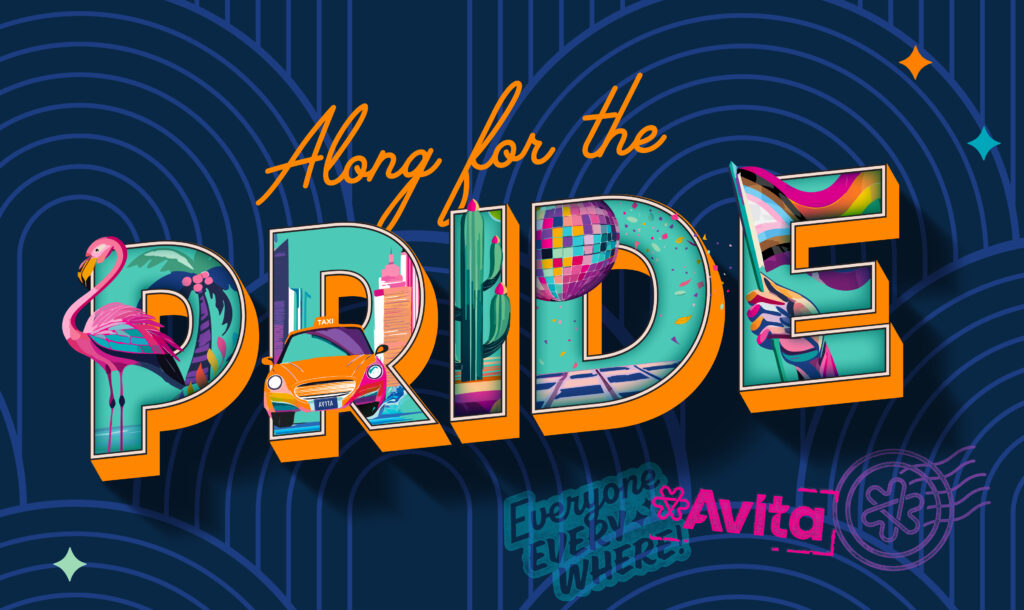At Al’s, an LGBTQ+ bar in Birmingham, Alabama, the song “I’ll Never Love Again” starts to play. Out walks Ara Turner, stage name Ara Besque Starr. She picks up her mic and begins.
When the song slowly fades a tear runs down her face, reflecting the bright stage lights. “Sorry,” she says from the stage, “that one is really hard to get through.” It’s clear that this isn’t just a performance for Ara. It’s a raw expression of both her joy and her sorrow, and part of her identity as a transgender woman.
We originally connected with Ara through Birmingham AIDS Outreach’s (BAO’s) Magic City Wellness Center—one of Avita’s more than 320 covered entity partners. We were there to learn more about Ara’s health care journey, specifically her experiences as a trans woman.
Telling Ara’s story
Ara’s story is one of both pain and triumph.
“I’ve been performing on stage for as long as I can remember,” says Ara. “I found out my friend was going to start doing drag, so I was like, ‘That’s what I want to do.’
“Growing up, it was hard,” she says. “My dad specifically was not the most understanding… anything that was slightly feminine was always a bad thing.”
Studies show the most significant barrier to health care for transgender people is a lack of access to providers who understand the struggles and stigma this community faces. It’s often a patient journey barren of cultural competency and affirming care, which can lead to trans women at like Ara facing significant health disparities, including higher rates of STIs, HIV, or other preventable illnesses.
And as more states move to block gender-affirming health care for trans youth, the issue only becomes more challenging.
This isn't just a performance for Ara. It's a raw expression of both her joy and her sorrow, and part of her identity as a transgender woman.
"It's a place that I completely feel safe."
That’s where Avita comes in. By partnering with community health care organizations across the country that are equally dedicated to affirming care and sexual wellness for the LGBTQ+ community, our pharmacy teams make sure individuals like Ara know that compassionate care is available. “Patients from the LGBTQ+ community come [to Avita] because they feel safe, comfortable, and seen,” says Shayla Smith, an Avita pharmacy technician at one of our more than 65 locations. “I go out of my way to put patient care first. I will earn that trust.”
Beyond offering respectful, personalized clinical care that makes patients feel like they’re part of our “medical family,” Avita also collaborates with our covered entity partners to provide a wide array of co-branded educational initiatives, outreach materials, and community event support. From helping individuals secure financial assistance support for their prescriptions, to staying in close contact with their provider and case management teams, our goal is to be an advocate for the nation’s most underserved and vulnerable patients.
“I never had someone do that for me,” says Chris Campbell, a drag performer at Al’s who is also a PrEP coordinator at BAO’s Magic City Wellness Center. When Chris met Ara, he was determined that he could make a difference in her life, and his own struggles compelled him to reach out to her. “I sort of see myself in her, and I wish I at that age had someone who took an interest in my health care,” he explains.
Chris asked Ara about whether she was on PrEP (pre-exposure prophylaxis to prevent HIV) or HRT (hormone replacement therapy) and encouraged her to check out Avita and BAO’s care providers.
“That was the best decision I could have ever made,” says Ara. “We had a real conversation, and that was the moment I knew: That’s where I need to be; that’s where I want to go. It’s a place that I completely feel safe.”
Studies show the most significant barrier to health care for transgender people is a lack of access to providers who understand the struggles and stigma this community faces. It's often a patient journey barren of cultural competency and affirming care.
Supporting the community and the individual
Working to end stigma and discrimination in health care so that people can unlock the full potential of health is a huge part of Avita’s mission. By supporting our partners in growing their patient bases and expanding their community impact, we’re committed to shifting the focus back to where it should be: treating each patient as an individual.
“These are my people,” says Ara of the Avita and BAO teams. “These are people who do not care what I do, they don’t care how I identify, they just care about who I am as a person. I don’t feel like somebody different; I just feel like a person who is here for my health, and that’s it. Health care is for everybody.”
These are my people. These are people who do not care what I do, they don't care how I identify, they just care about who I am as a person. I don't feel like somebody different; I just feel like a person who iis here for my health, and that's it. Health care is for everybody.
- Performer and Avita Patient Ara Turner



